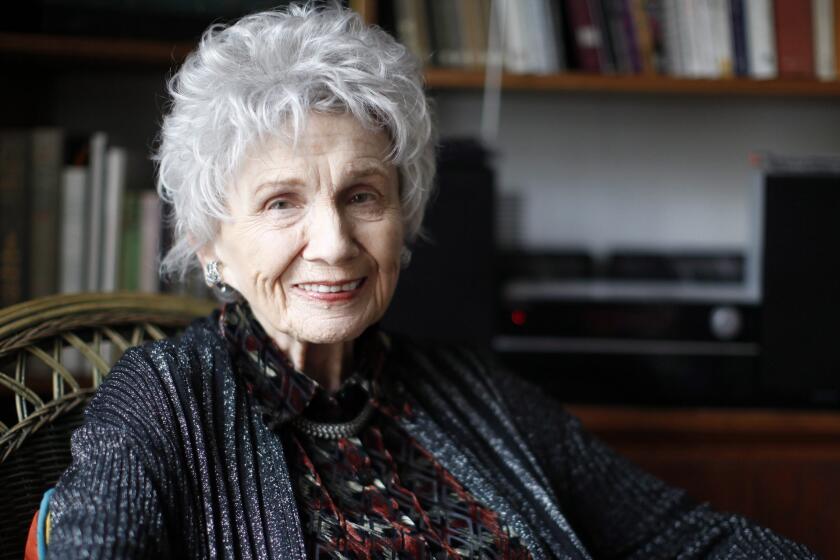Court Lifts Ban on ‘Wind Done Gone’
A federal appeals court Friday lifted a publication ban on a parody of “Gone With the Wind,” apparently clearing the way for the printing of a book that tells the story of plantation life through the eyes of slaves rather than those of their white owners.
A three-judge panel of the U.S. 11th Circuit Court of Appeals in Atlanta lifted the injunction that blocked publication of “The Wind Done Gone,” calling the ban “an abuse in discretion in that it represents an unlawful prior restraint in violation of the 1st Amendment.”
The case pitted the book’s publisher, Houghton Mifflin Co., against the estate of Margaret Mitchell, author of “Gone With the Wind,” one of the most popular books ever written.
The publisher argued that “The Wind Done Gone” was a parody of Mitchell’s work and therefore protected by the 1st Amendment. The Mitchell estate contended that the book, written by African American author Alice Randall, was an infringement of copyright law because it amounted to an illegal sequel to the 1936 novel.
Randall, who is also a Nashville songwriter, greeted the news of the decision by saying she was “delighted the American people will be able to read my book. If you allow yourself to be guided by fear, you stop being a writer. I wrote this book so all of America would have a deep-healing belly laugh.”
Wendy J. Strothman, vice president for the trade and reference division of Houghton Mifflin, said the book should be in stores within two or three weeks.
“Today’s victory is an absolute victory for both the 1st Amendment and the fair use doctrine of the Copyright Act, both crucial to American culture and freedom of expression,” she said. “We’ve always thought of Alice’s book as a parody. That’s what she called it. It was called a parody in the contract.”
But Martin Garbus, the lawyer for the Mitchell estate, said the case will be back in court and predicted that it would be heard by the U.S. Supreme Court by the end of the month.
“We think the decision was wrong,” he said.
The lawsuit was closely watched by both the publishing industry and legal experts because it was viewed as a test case of how much a parody can borrow from a copyrighted work.
Publication also was supported by many artists and intellectuals, who saw it as a question of the right to tell history from a different point of view. Among those who lent their support to Randall were noted author Pat Conroy and Nobel laureate Toni Morrison.
Software giant Microsoft Corp. and a number of media companies, including Tribune Co., owner of the Los Angeles Times, also sided with Houghton Mifflin in the dispute.
On April 20, U.S. District Judge Charles A. Pannell Jr. sided with the Mitchell Trusts, granting a preliminary injunction in the case. In his ruling, Pannell said Randall borrowed liberally from “copyrighted characters and scenes” and that it “infringes on the copyright owner’s right to create derivative works.”
The federal appeals judges issued their opinion with uncharacteristic swiftness, doing so after only an hour of oral arguments.
Garbus said he would ask the entire panel of the circuit court to hear the case, and he expected the lower court ruling eventually to stand.
“Basically this book is a sequel, it’s parasitic,” he said. “There is no book without ‘Gone With the Wind.’ ”
The original work tells the now-famous story of Scarlett O’Hara, the spoiled Southern belle who lives on a plantation called Tara. She marries the rascally Rhett Butler but is in love with gentlemanly Ashley Wilkes.
In “The Wind Done Gone,” Rhett actually is in love with Scarlett’s half-black half-sister, Cynara, and Wilkes is a homosexual.
For years, African Americans have criticized “Gone With the Wind” for providing a false picture of plantation life, skimming over the brutality that slaves faced during the Civil War and its aftermath.
More to Read
Sign up for our Book Club newsletter
Get the latest news, events and more from the Los Angeles Times Book Club, and help us get L.A. reading and talking.
You may occasionally receive promotional content from the Los Angeles Times.






